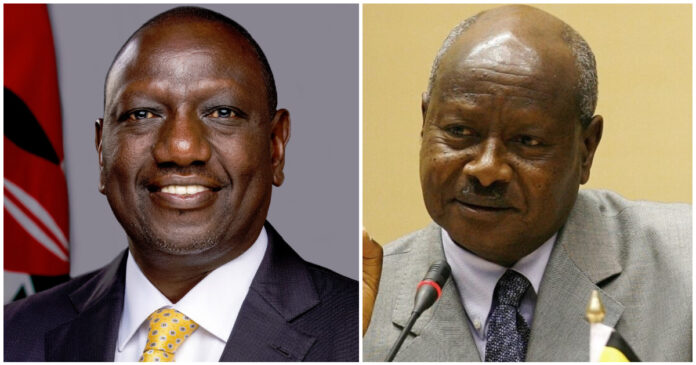Uganda has filed a suit at the East Africa Court of Justice to challenge Kenya’s decision to restrain them from using the Mombasa Port to import petroleum products.
Uganda has been importing approximately 90 percent of refined petroleum products through the port of Mombasa.
The products are transported using pipelines owned and operated by the Kenya Pipeline Company Limited.
“The complete reliance and dependency on Kenyan OMCs to import and supply petroleum products to Uganda have exposed the Republic of Uganda to supply vulnerabilities resulting in an avoidable increase in fuel pump prices,” Uganda stated in court documents as reported by The Star.
In the fourth quarter of 2023, Uganda canceled its petroleum importation deal with oil marketing companies in Kenya over exorbitant prices.
It then mandated its national oil company, UNOC, to handle all petroleum importation in a bit to minimise forex exposure.
The Kenyan authorities in line with the principles and provisions of the Treaty and Protocols assured the Ugandan authorities of Kenya’s unwavering support in the implementation of the said policy.
Upon engagements with the relevant authorities in Kenya, UNOC sought to enter into a Storage and Transportation Agreement with KPC.
Consequently, UNOC was required by Kenya to meet certain regulatory requirements including obtaining an Import, Export, and Wholesale of Petroleum Products (except LPG) Licence (hereinafter referred to as “the Licence”) from EPRA to utilise the petroleum transit infrastructure in Kenya, especially the Kenya Pipeline systems in furtherance of the new Ugandan policy.
This requirement, according to Uganda, is an unnecessary hindrance to the implementation of its petroleum policy as the petroleum products were wholly transit goods and not destined for Kenya.
Uganda argued that it is a landlocked country and has the right, under the Treaty for the Establishment of the East African Community and the United Nations Convention on the Law of the Sea, to which the Republic of Kenya is signatory, of access to and from the sea and freedom of transit through the territory of Kenya by all means of transport.
Uganda wants a declaration that the actions of Kenya complained of above contravene Articles 5(1), (3)(a), (b), and (h):6(b). (d) and (f); 7(1)(a) (b); 8(1)(a) and (c); 23; 27; 28; 76(1); 89(b) and (e); 90(j); 93(c) and (d); and 130 of the Treaty for the Establishment of the East African Community and Articles 3(2), 4(2)(a), 5(1), 18 and 38 of the Protocol
“A declaration that the action of the Republic of Kenya restraining EPRA from issuing the Licence to the Applicant contravenes Articles 5(1), (3)(a), (b) and (h); 6(b) (d) and (f); 7(1) (a), (b); 8(1)(a) and (c); 23; 27, 28; 76(1); 89(b) and (e); 90(1); 93(c) and (d); and 130 of the Treaty for the Establishment of the East African Community and Articles 3(2), 4(2)(a), 5(1), 18 and 38 of the Protocol,” Uganda claims.
It also wants a declaration that the action of the Republic of Kenya prohibiting the grant of any waiver of the licensing requirements for the Licence to the Applicant contravenes Articles of the Treaty for the Establishment of the East African Community and Articles 3(2),4(2)(a),5(1), 18 and 38 of the Protocol.
A permanent injunction was issued against the Republic of Kenya for imposing unrealistic restrictions on UNOC accessing the KPC system.
Source: https://energynewsafrica.com
















